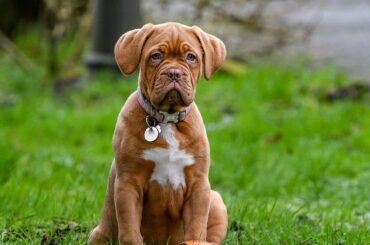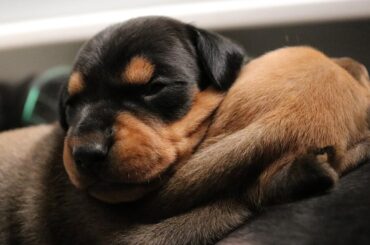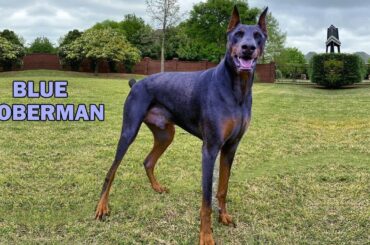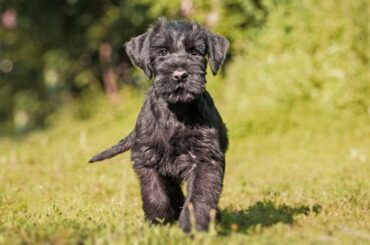The Redbone Coonhound is a breed renowned for its skill in the hunting arena, owing to its sleek red coat and steadfast drive. In addition to their exceptional hunting abilities, these puppies are devoted, loving, and excellent companions. If you recently brought a Redbone Coonhound Puppies into your house or are thinking about doing so, you’re about to go on an amazing journey that will be full of happiness, obstacles, and unending love.
In this extensive guide, we will take you step-by-step through the thrilling process of rearing and taking care of Redbone Coonhound Puppies. We have you prepared for everything from their unique traits to training advice, health concerns, and everything in between. This article is meant to give you the information and understanding you need to guarantee a happy and peaceful life with your Redbone Coonhound Puppies, regardless of how experienced you are with dogs.
So, let’s dive in and discover how to nurture your Redbone Coonhound Puppies and unlock their full potential as a loyal and loving companion and, if you wish, a skilled hunting partner.
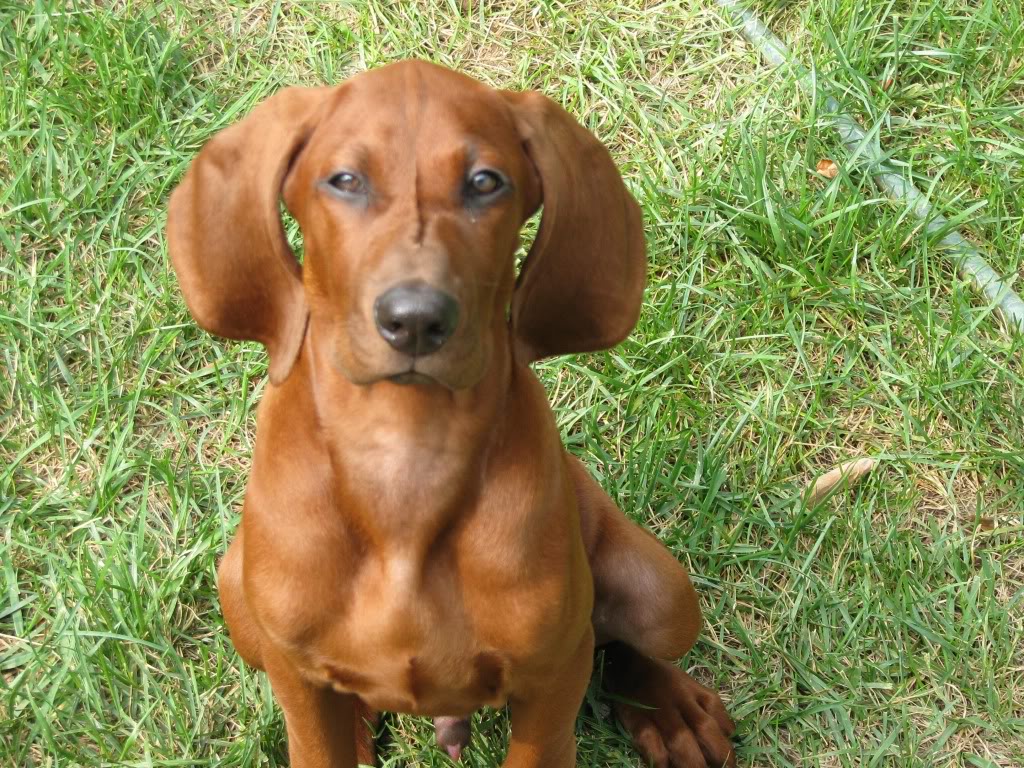
Table of Contents
Redbone Coonhound Puppies Historical Origin
The fascinating history of the Redbone Coonhound Puppies dates back to the early years of American history. These hounds are a unique breed with a long history as hunting dogs, and early immigrants brought several European breeds to the US that may have influenced their evolution.
The European foxhound, Scottish and Irish hounds, and other hunting breeds were the forebears of the Redbone Coonhound. In the late eighteenth century, European settlers transported these dogs to the American colonies. These canines were bred and modified over time to meet the unique requirements of American hunters.
The South of the United States was the primary breeding region for the breed that would eventually become the Redbone Coonhound. According to some historians, the “Saddleback” strain of the breed—named for its eye-catching red coat—was developed by George Birdsong of Georgia, who is attributed with the breed’s origins. The Redbone Coonhound Puppies unique appearance and hunting prowess are a result of Birdsong’s breeding program.
The breed was officially recognized as the Redbone Coonhound by the United Kennel Club (UKC) in 1902. The name “Redbone” refers to the red color of their coat and “coonhound” indicates their primary purpose, which is hunting raccoons.
While Redbone Coonhounds are still used for hunting in some regions, they have also gained popularity as family pets and show dogs. Their friendly and affectionate nature, coupled with their striking appearance, has made them a beloved breed among dog enthusiasts.
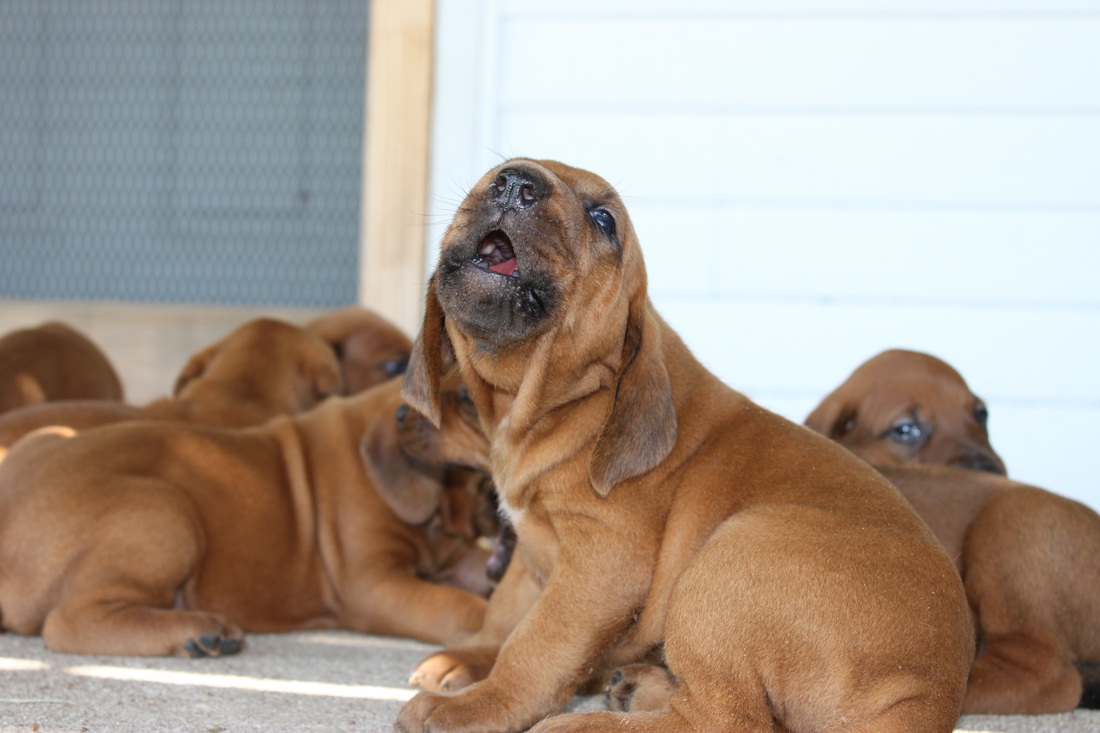
Redbone Coonhound Puppies: Description And Appearance
Redbone Coonhound Puppies and adult Redbone Coonhounds have many of the same physical qualities, however they frequently have some distinctive traits and display youthful features.
Redbone Coonhound Puppies are smaller in size compared to adults. They are typically born small and grow rapidly during the first few months of life. They have a short coat, similar to the adults, but it may appear softer and more downy in their early stages. Their coat color is a shade of red, as in adults, but it might be lighter in puppies and will likely darken as they mature.
Like adults, Redbone Coonhound Puppies have expressive, alert eyes that are either dark brown or hazel. They have long ears that droop on their cheeks, just like the adults do, however they may seem larger than their actual size. Their head and muzzle are proportionate and appear slightly more rounded or puppy-like.
They have a well-built body and a somewhat large chest for their size. Their robust and erect limbs enable them to play and explore with great passion. They have a young, active stance, and the abdomen is tucked up. The tail of Redbone Coonhound Puppies is long and display a playful and exuberant gait, often marked by boundless energy and enthusiasm.
Redbone Coonhound Puppies will eventually acquire the physical traits of adult Redbone Coonhounds as they grow and develop. As they grow from puppies to adults, their coats darken, their features become more defined, and they acquire the unique characteristics that set this breed apart.
Redbone Coonhound Puppies Personality And Temperament
Redbone Coonhound Puppies are endearing and loving by nature, and they frequently carry these traits and personality into maturity. These puppies are generally friendly and sociable. They enjoy being around people and are often quite affectionate. They are known for forming strong bonds with their human family members. Like most puppies, Redbone Coonhound Puppies are full of energy and love to play. They have a playful and exuberant nature, which makes them a great match for active families who can keep up with their energy levels.
These puppies of Coonhounds have an innate curiosity and love to explore their surroundings. They utilize their noses to explore their surroundings and are renowned for having a good sense of smell. They are intelligent and quick learners. They respond well to positive reinforcement training methods, and their desire to please their owners makes them trainable.
Redbone Coonhound Puppies have a distinctive, melodious bay, and they may start talking or baying at a young age. This trait is part of their hunting heritage and may continue into adulthood. As a breed developed for hunting, Redbone Coonhound Puppies may exhibit a strong prey drive even at a young age. They might be inclined to chase after scents and small animals, so early training and socialization are important.
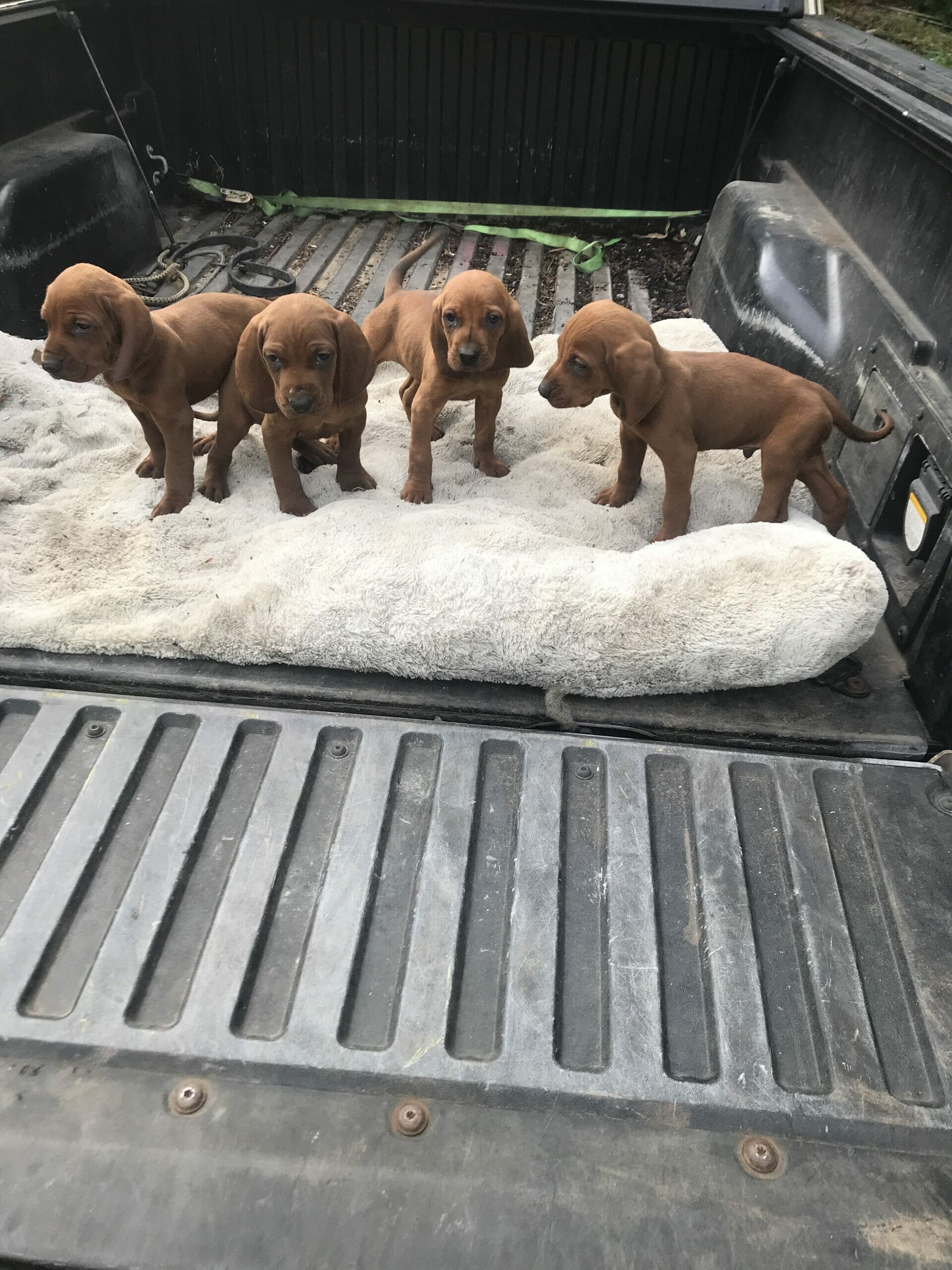
Behavior and Training Tips for Redbone Coonhound Puppies
Redbone Coonhound Puppies are intelligent, but they can also have a stubborn streak. Early socialization and training is an absolute necessity and will help strengthen the bond between you and your puppies. Hunting-related commands come more naturally to them than other commands. It is important to teach your puppies basic commands like sit, stay, come, and down, and be consistent with your commands and expectations. Usimg positive reinforcement techniques like treats and praise to reward good behavior is also an crucial in training your Redbone Coonhound Puppies.
In addition, these cute puppies enjoy puzzle toys and toys that challenge their problem-solving abilities. Providing toys and activities will prevent boredom and destructive behavior.
Redbone Coonhound Puppies Grooming Guide
The Redbone Coonhound Puppies despite their short coats, coonhounds benefit from routine brushing since it helps keep their skin and coat healthy and removes loose hair and debris. Grooming mitts or soft-bristle brushes are good options. To maintain a healthy coat, give your puppy a once-weekly brushing.
It will be right for Coonhound owners to check their puppies flappy ears regularly for signs of infection, dirt, or wax buildup and should be gentle and avoid pushing anything deep into the ear canal. Dental care is important for your Redbone Coonhound Puppies. Brush their teeth at least 2-3 times a week to prevent dental issues.
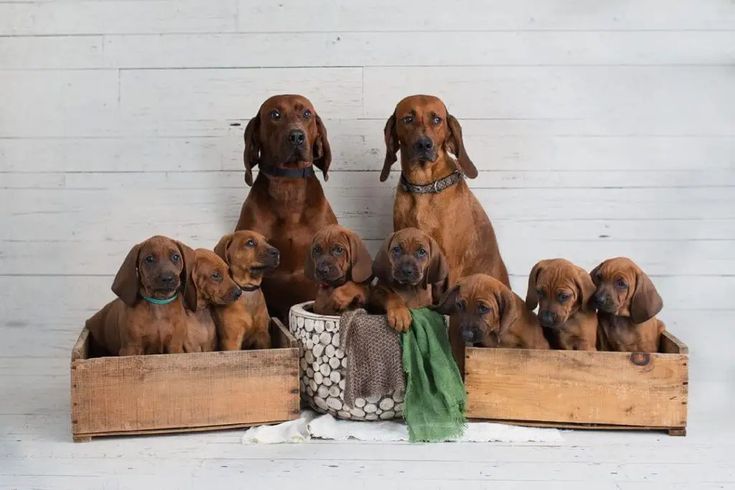
Diet And Nutritional Tips For Redbone Coonhound Puppies
Adequate nourishment is crucial for the general well-being, rapid growth, and maturation of your Redbone Coonhound Puppies. Puppies have different nutritional requirements at various stages of development. Ensure you’re feeding your puppies an age-appropriate diet. Overfeeding can lead to obesity, which can be detrimental to your puppies health. Measure your puppy’s food portions and feed them at scheduled times.
Redbone Coonhound Puppies benefit from a diet with adequate protein and fat levels to support their growth and energy needs. Aim for a food that contains around 25-30% protein and 12-20% fat. And as your Redbone Coonhound Puppies grows, there is need to transition them to an appropriate adult dog food. Consult your veterinarian for guidance on when and how to make this transition.
Redbone Coonhound Puppies Health Concerns
Redbone coonhounds are generally very healthy. They usually live up to 15 years. But they are susceptible to certain health concerns like hip dysplasia, demodectic mange, heart disease. They sometimes develop cataracts and cancer.
Conclusion
In conclusion, Redbone Coonhound Puppies are delightful and energetic companions that can make wonderful additions to the right families or individuals. Nurturing and caring for Redbone Coonhound Puppies involves a commitment to training, socialization, proper nutrition, grooming, and regular veterinary care. With the right care and attention, Redbone Coonhound puppies can grow into loving and loyal companions, offering years of joy and companionship.
READ ALSO
- Wire Fox Terrier Puppies: Amazing Personality & Facts in 2023
- Central Asian Shepherd Puppies – Comprehensive Central Asian Shepherd Puppies Care Guide for Beginners in 2023
- Pit Bull Puppies -5 Awesome Physical Features, Traits & Facts
- Jagdterrier Puppies: 5 Comprehensive Guide to Jagdterrier Puppies
FAQS
Are Redbone Coonhounds good house dogs?
Redbones are devoted companions and are very versatile, excelling in a range of venues, including coonhound trials and canine sports such as agility. Most of all they are great family dogs, very loving and loyal.
What are Redbone Coonhounds used for?
Redbone Coonhounds were developed in the US with the skills needed to hunt raccoon and larger North American prey, such as deer, bear, and cougar. They are versatile, tenacious hunting dogs, with strong scenting abilities, a sharp eye, and great speed.
What do Redbone Coonhounds eat?
When selecting what to feed your Redbone Coonhound, choose a diet with high-quality animal-based protein sources, such as beef, chicken, turkey, lamb, duck, eggs, and fish.

